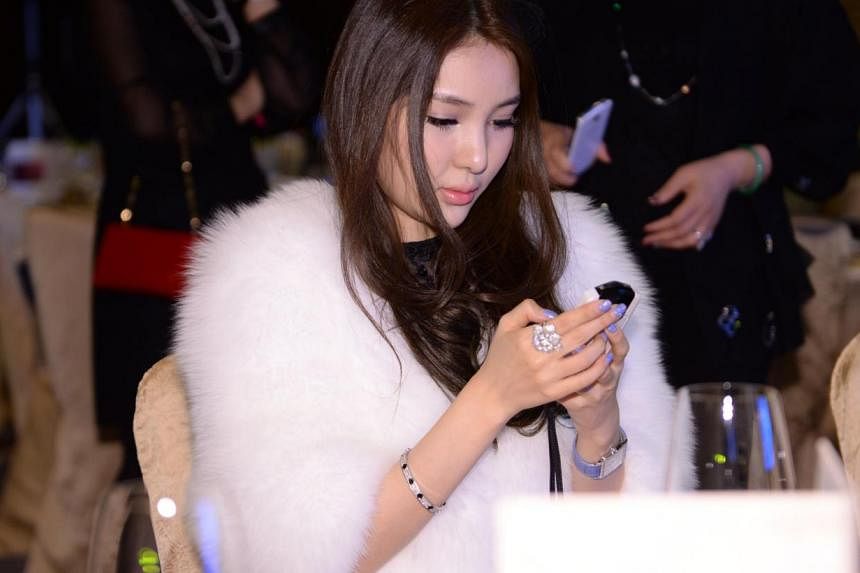BEIJING (CHINA DAILY/ASIA NEWS NETWORK) - A young woman who sparked online controversy by flaunting her wealth three years ago has come under the media spotlight again for her involvement in the sex trade and gambling, Chinese media reported.
Guo Meimei gained notoriety in 2011 after bragging about her Maserati and luxury bags on social media while claiming she managed an organisation under the Red Cross Society of China (RCSC). She was 20 years old at that time.
The scandal dealt a major blow to the reputation of the state-owned RCSC and caused a massive drop in donations due to public concerns over the embezzlement of charity funds.
Now the 23-year-old faces possible prison time after her confessions of prostitution and gambling were made public by police on Monday, Xinhua reported.
She was arrested on July 9 for participating in gambling during the World Cup and organising other gambling activities.
In February 2013, Guo and her boyfriend began inviting people to gamble in a rented house, deducting 3 to 5 per cent of the gambling funds for themselves, according to police.
The police also said Guo had participated in the sex trade "many times" at a price of hundreds of thousands of yuan each time. Prostitution is illegal in China.
According to Guo's confession, she flew to south China's Guangdong province to meet a man in July 2013 after the man offered her a down payment of 50,000 yuan (S$10,000). The man offered another 400,000 yuan to have sex with her.
According to her personal assistant, surnamed Lu, Guo often travelled under the guise of "commercial performance", but each time she met with men and stayed with them in hotels for the night. "I would find bundles of cash when I packed for her the next day," Lu said.
In her confession, Guo said: "I feel very regretful thinking about what I have done over the past several years. I will never gamble, flaunt wealth or do anything to violate the law or morality again."
She also confessed to police that she had nothing to do with the Red Cross Society of China.
"None of my relatives and friends, including my ex-boyfriend, were staff members of the RCSC. I didn't know anyone from the Red Cross," Guo said. "I made a huge mistake to gratify my vanity," she said during the investigation.
"I want to say sorry to the Red Cross, all of society and especially to all the people who cannot get aid from the Red Cross (because of my false claims)," she said.
According to Beijing police, Guo's wealth came from illegal gambling, commercial performances including singing, and the sex trade.
In mid-2011, Guo claimed on social media she was a manager of an organisation under the charity and openly flaunted her wealth and extravagance.
Her posts triggered concern over how donations are used by the country's state-run charitable organisations and dealt a major blow to the RCSC, which has been struggling to regain trust since the scandal.
Donations to the society dropped by 23.68 per cent in 2012, according to the China Charity and Donation Information Center.
The society released a statement on Monday, saying that some institutions and people had made up rumours against it, and pledged to improve its transparency.
Tao Chuanjin, director of the Research Center of Philanthropy and Social Enterprise at Beijing Normal University, said it will be very hard for the society to rebuild its reputation.
"From the start, Guo's comments were not trustworthy, but still triggered the credibility crisis," Tao said. "It showed the public already had doubts about how the society works."
"The scandal helped us to reflect on how charity work is done in China. Instead of relying on government institutions, people began to establish their own platforms and foundations to operate in a different way. The public has more choices than before," Tao added.
Deng Guosheng, director of Tsinghua University's NGO Research Center, said more education is needed to tell people of the importance of charity and social work.
The government should set up more platforms for the public to take part in this and give more credit for such work, Deng added.

